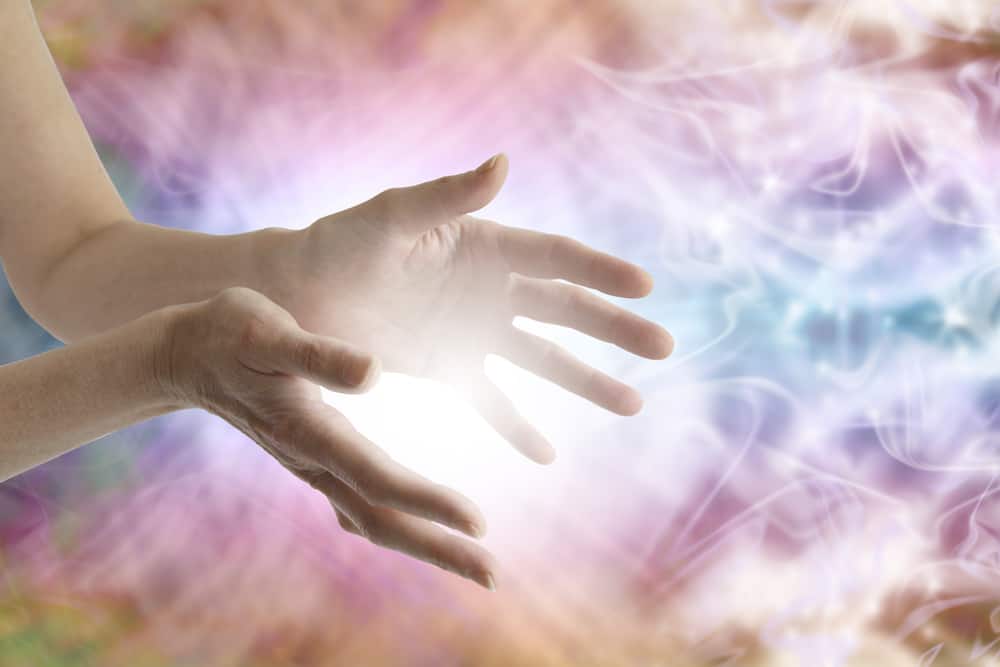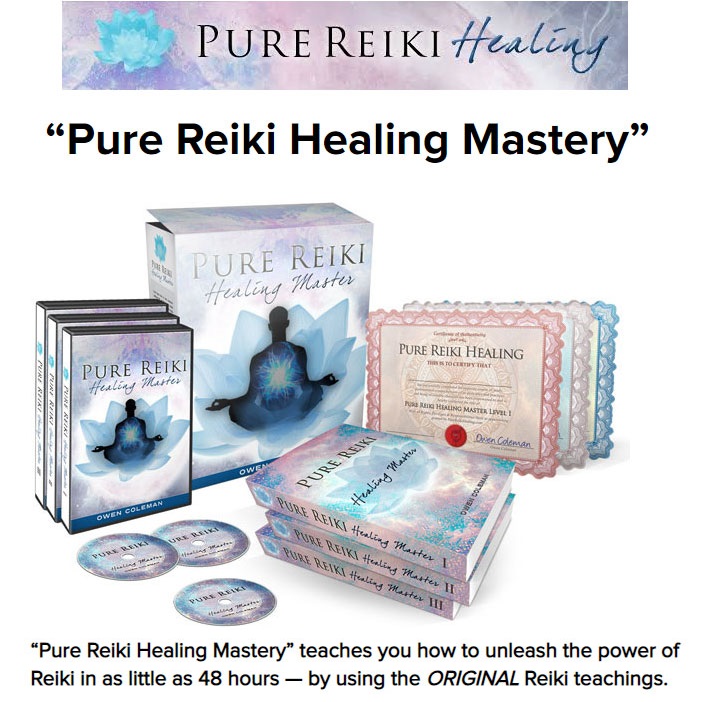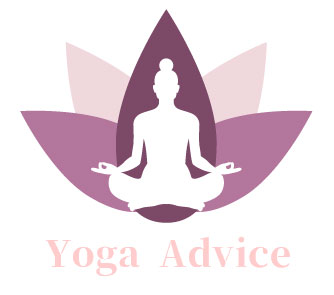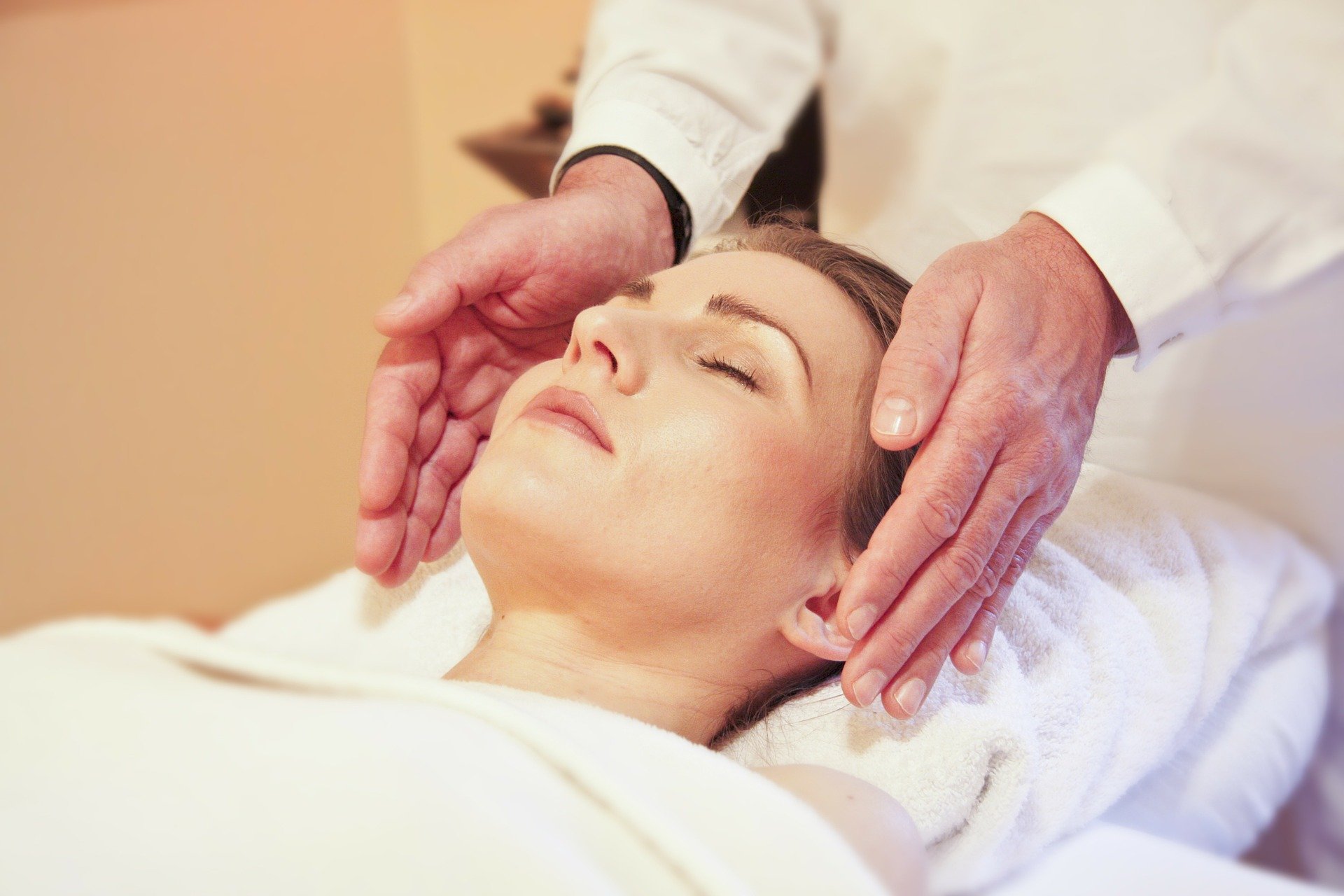Reiki
Reiki means the energy of the mind. Japanese holistic approach complementary to the classical doctor, it would help to fight stress, fatigue, sleep disorders or depression. How does a session take place? How much does it cost? Are there any dangers? Are there any contraindications? Discovery.
Definition
Reiki is a holistic approach of Japanese origin belonging to the so-called "energetic" approaches. It consists in awakening in each of us a dynamic healing process by intervening on the vibratory field of the person.
Principles
The practitioner places his hands on different parts of the body and lets the transmission of energy take place. "This age-old process is present in every human being as a reflex by spontaneously placing the hands on the place where the pain is felt" explains Sophie Rusniok, energeticist and Reiki Usui master teacher. In this process, the practitioner acts as a channel for the universal energy to transmit it to the patient in order to restore his or her vital force, without however engaging his or her personal energy. "This energy is directed towards the areas of the body that need it the most," says the energeticist. Reiki recognizes that a low energy level in the body leads to a general state of vulnerability. And when energy flows evenly and harmoniously, the person feels more connected, more aware and more grounded in the moment. This ground is conducive to a good balance at all levels of being, spiritually, psychologically and physically". Reiki is also philosophical. Inspired by Buddhism, Shintoism and meditation techniques, in a holistic dimension, i.e. global. The goal being to find peace within oneself. It is a true "art of living whose principles help everyone to blossom, to feel in harmony with the world around him".
The origins of Reiki
Reiki is an energetic art of Japanese origin developed by Mikao Usui at the end of the 19th century. "Rei" means "the universal", the "all": matter, soul and spirit. And ki (or Qi) refers to the vital energy circulating within each individual, as for example in Chinese medicine. Reiki is the method of bringing or reconnecting the universal energy with the vital force specific to each one of us. This energetic art was introduced to the West in 1937 in Hawaii by Hawayo Takata and spread to the Western world.

When to resort to Reiki?
In Paris and in big cities in general, the consultant comes to Reiki "because of depression, burn-out, excessive stress at work. Others are just tired from city life and overexposed to noise and electromagnetic waves. Some don't sleep anymore. Still others come out of curiosity. The target is not necessarily the body, but also the mind, emotional blockages, sleep problems" explains the energeticist. The consultant uses it to learn to let go, to relax, to silence the inner monologue. He wishes to rebalance himself to live serenely in everyday life. Sometimes he tries to calm down his deeper troubles. The practice of Reiki is complementary to other techniques and allopathic medicine. The energetician advises "a series of four sessions every six months for a healthy, urban person. For a person who is suffering or ill, another type of work is proposed, one that is more sustained. The consultations can lead to personal training to carry out the work independently, without depending on a practitioner".
What are the health benefits?
Like any holistic practice, Reiki would allow :
• soothe the body and mind
• provide a sense of well-being
• to harmonize the flow of energy
• promote a state of relaxation
• support the potential for healing
and as a result, a restful sleep, better blood circulation, less physical pain and less stress. This is the principle of self-healing. "Once the body and soul are ready to trigger this healing process, it can take place naturally to its cause. You just never know when. There are people who, after ten or so sessions, still haven't solved their problem, just as you get results in a single appointment. Knowing that Reiki naturally goes to the most urgent target, the problem solved will not necessarily be the one for which the person initially came to consult", underlines the energeticist.
How effective?
"We always encourage people to consult and follow the advice of their treating physician. We encounter failures but they are rare," confides the energetician, "and they concern either people who have not yet decided to take care of themselves, or who expect everything from the outside, including the confidence they might have in their own feelings." He continues: "Scientific studies exist abroad. They have highlighted the benefits of Reiki on the quality of sleep, on a reduction in pain and heart rate. The health system in France is cautious of practices that are not based on any foundation of existing science", deplores the energetician. Current studies are therefore still insufficient to confirm that Reiki is an effective therapeutic approach, despite the benefits observed empirically.
Reiki is for everyone, children, adults, and pregnant women.
Where to practice Reiki?
Reiki is practiced in the office of a practitioner who has received a live initiation from a master of the Mikao Usui lineage (see the paragraph on training, below). Or "for those who are initiated during a training course, they can practice "self-treatment" - that is, the laying of hands on oneself - at home. It is compatible with other disciplines such as Yoga, mindfulness meditation," says the energetician.

How does a Reiki session take place?
"The session begins with a ritual of calling for energy (internal), then the practitioner places his hands with precise positions on the whole body of the person dressed and lying on the massage table. Sometimes in contact with the body, sometimes a few centimeters above, explains the energetician. I let the energy flow through my hands. The sensations generally perceived are soft or intense heat, tingling, energy flows, a sensation of warm water flowing through the body. Other effects are common to many, such as the palpable impression that the hands are always placed in one place when they are already elsewhere. Reiki reaches its target by itself, respecting the rhythm of the person".
Dangers of Reiki and Contraindications
"There is no danger in the practice of Reiki," says the energeticist. The worst that can happen during a session is "nothing". Hence the importance of checking whether the practitioner has indeed been initiated directly by a master of the Usui lineage, information that can often be verified on his or her website. There are no contraindications, even if I prefer not to give a session to a person under psychiatric care, without working closely with his doctor" indicates the energetician.
There are four degrees of Reiki training:
• 1st degree initiation (sufficient to practice on oneself or on one's entourage),
• through the 2nd and 3rd degree to evolve in his practice and his personal path,
• up to the 4th degree to become a Reiki master teacher. There is no official professional training and the reference associative organization for Usui Reiki is the Federation of Usui Reiki (LFRU).
"Reiki cannot be learned in books or in a totally theoretical way. There is the presence of the master teacher who transmits the vibration of Reiki through him and this intimate and deep experience is necessary. Learning Reiki is a process for oneself, an energetic and philosophical path above all. This approach can result from a desire to transmit the energy that one has received" explains Sophie Rusniok.


